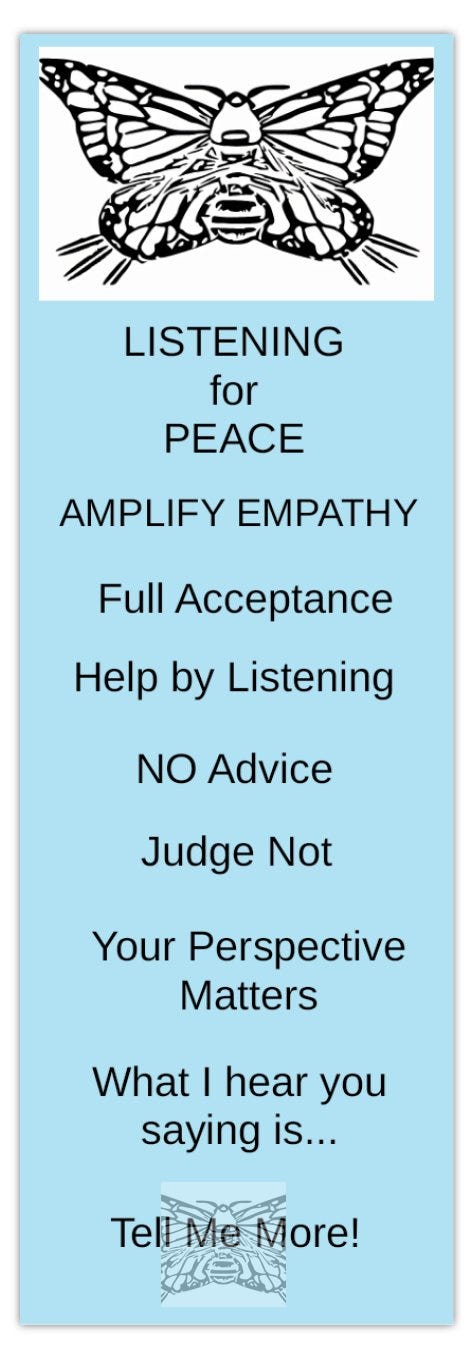In human interactions, hormones like oxytocin, dopamine, serotonin, cortisol, estrogen, testosterone, orexin, vasopressin, melatonin, and endorphins significantly shape our communication styles and emotional responses. Recognizing the role of these chemical messengers holds practical significance in understanding why conversations matter and how they influence our lives.


Brain Health
In The Neurochemistry of Positive Conversations, Judith E. Glaser and Richard D. Glaser explore why negative comments have a lasting impact compared to positive ones. The chemistry of conversations reveals that cortisol, produced in response to criticism or fear, can affect our thinking center and behavior for more than 26 hours. In contrast, positive comments trigger oxytocin production, enhancing communication and trust, but its effects are shorter-lived. The "chemistry of conversations" emphasizes the importance, especially for managers, of being mindful about behaviors that affect Conversational Intelligence (C-IQ). Survey findings indicate a dual behavior pattern among managers, impacting followers' brains and reducing C-IQ. A case study illustrates a positive transformation in leadership behavior after recognizing the chemical impact on team dynamics. Understanding this chemistry can lead to more inclusive and supportive communication. Brain health impact of positive conversations has been studied ever since this groundbreaking study in 2014.
The Impact of Hormones and Pheromones on Social Dynamics: Why It Matters
Understanding the impact of hormones and pheromones on social dynamics is crucial because it unveils the intricate ways conversations shape our lives and relationships.
Trust and Empathy: Oxytocin, known as the "love hormone," fosters trust and empathy during conversations. Recognizing this sheds light on the foundation of deepened connections. When we understand how oxytocin operates, we can consciously strive for interactions that build trust and empathy, enhancing the quality of our relationships.
Rewarding Social Interactions: Dopamine, the "feel-good hormone," transforms social interactions into rewarding experiences. Acknowledging its role helps us appreciate the motivational aspect of conversations. Being aware of the dopamine influence enables us to create more engaging and positive dialogues, contributing to overall well-being.
Mood Regulation: Serotonin, a regulator of mood, directly impacts the quality of conversations and our general well-being. Recognizing its role emphasizes the importance of maintaining positive and supportive communication environments, understanding the ripple effect on emotional states.
Stress and Emotional Impact: Conversely, cortisol, the stress hormone, introduces tension and anxiety into discussions. Understanding its influence prompts the need for mindful and supportive communication, minimizing stress and preserving mental well-being during conversations.
Gender-specific Dynamics: Estrogen and testosterone influence conversational behaviors, impacting emotional engagement and assertiveness. Acknowledging these gender-specific dynamics fosters a deeper understanding of communication patterns, enabling more effective and empathetic interactions.
Energy Levels and Emotional States: Orexin, vasopressin, melatonin, and endorphins contribute to our energy levels, alertness, and emotional states during conversations. Recognizing these influences allows us to adapt our communication style based on the desired emotional tone and engagement level.
Subtle Impact of Pheromones: Although debated in humans, acknowledging the potential subtle impact of pheromones on social behaviors adds another layer to our interactions. Unconscious detection of pheromones might influence likeability, attractiveness, and social engagement, highlighting the complexity of human communication.
Release of Oxytocin:The Empathy Factor
Oxytocin, often referred to as the "love hormone" or "bonding hormone," plays a crucial role in facilitating empathy. When oxytocin is released in the brain, it enhances social bonding and connection by influencing various neural pathways.
Empathy Enhancement: Oxytocin appears to heighten our ability to understand and share the feelings of others. It promotes empathy by increasing our emotional sensitivity, making us more attuned to social cues and emotions. This heightened empathy fosters a deeper understanding of others' perspectives and emotions.
Neural Mechanisms: Oxytocin influences the activity of specific brain regions associated with social and emotional processing, particularly the amygdala and prefrontal cortex. The amygdala is involved in processing emotions, while the prefrontal cortex is associated with higher-order cognitive functions, including empathy and understanding others' mental states.
Reducing Fear Response: Oxytocin has been found to dampen the amygdala's response to social threats, reducing fear and anxiety in social situations. This reduction in fear allows individuals to approach social interactions with greater openness and receptivity, contributing to enhanced empathetic responses.
Enhanced Trust and Bonding: Oxytocin is also associated with increased trust and prosocial behaviors. Studies suggest that higher oxytocin levels lead to greater trust in others, which is a fundamental aspect of empathetic connections. This trust-building mechanism further reinforces social bonds and facilitates empathetic interactions.
Social Recognition: Oxytocin is thought to enhance social recognition, helping individuals better identify and remember familiar faces. This recognition contributes to a more nuanced understanding of others' emotions and experiences, reinforcing the empathetic response.
Understanding the role of hormones and possibly pheromones matters because it sheds light on why conversations are transformative. Conversations are not just exchanges of words; they are experiences that influence our neurochemistry, shaping our perspectives and emotions. Realizing the biochemical changes we undergo through conversations emphasizes their profound impact on our mental and emotional well-being.
Listening for Peace: Fueling Your Happiness Journey With Empathy
In the realm of*** Happiness Habits***, cultivating the skill of listening for peace stands out as a powerful tool for mental well-being and positive change. By embracing this habit, we not only nurture our own happiness but contribute to a more connected and understanding world.
1. Unconditional Acceptance: Begin by acknowledging that your acceptance of others is unconditional. This foundational mindset sets the stage for genuine and open communication. By removing conditions from your acceptance, you create a space where individuals feel heard and valued.
2. Helping Through Listening, Not Advising: Understand that true help often comes in the form of listening, not immediate advice-giving. Resist the urge to offer solutions before fully grasping someone's experience. Instead, provide a supportive listening ear, fostering an environment where individuals can explore their thoughts and feelings.
3. Judgement-Free Zone: Refrain from passing judgment and make an effort to see things from the other person's perspective. This empathy-driven approach fosters understanding and promotes a non-judgmental space where individuals feel safe to express themselves authentically.
4. Reflective Listening: Utilize the technique of reflective listening by paraphrasing and confirming your understanding of what the other person is saying. Employ the phrase "What I hear you say is ______________, tell me more!" This not only ensures clarity in communication but also communicates your genuine interest in the speaker's thoughts and emotions.
Amplifying Empathy and Creating Connection: Amplify empathy through active and intentional listening. When we truly listen to hear, we create a more connected world. By implementing these habits, we contribute to a positive change in our immediate relationships and, by extension, the broader community.
Recognizing the profound influence of hormones like oxytocin in conversations is vital for understanding how biochemical signals shape our lives and relationships.
In Summary
Oxytocin's Role in Empathy: Understanding that oxytocin fosters trust and empathy during conversations sheds light on the foundation of deepened connections. As oxytocin is released in the brain, it enhances social bonding and connection by influencing neural pathways associated with emotional sensitivity and understanding others' perspectives. This heightened empathy allows for a more profound understanding of others' emotions, contributing to richer and more meaningful interactions.
Oxytocin's Impact on Listening: The release of oxytocin is intricately linked with positive communication experiences. By actively listening to others and engaging in reflective listening techniques, individuals can trigger the release of oxytocin. This creates an environment where individuals feel heard, valued, and connected, leading to enhanced communication and building a foundation for happiness.
Happiness Habits through Oxytocin: Oxytocin's ability to foster empathy and enhance listening skills aligns with the concept of Happiness Habits. By incorporating unconditional acceptance, non-judgmental perspectives, and reflective engagement in conversations, individuals can actively promote the release of oxytocin, contributing to their own happiness and the happiness of those around them.
Creating a Positive Feedback Loop: Oxytocin contributes to the formation of a positive feedback loop. Positive experiences associated with habit-related behaviors trigger oxytocin release, reinforcing the desire to repeat those behaviors. This loop strengthens over time, making the habit more ingrained and resistant to disruption.
By embracing oxytocin-driven habits, individuals can create an environment where happiness thrives, shaping not only their immediate relationships but also contributing to a more connected and understanding world. Conversations, fueled by oxytocin and empathetic listening, become not just exchanges of words but powerful experiences that positively influence our neurochemistry, perspectives, emotional well-being, and peace in our world.
Next Steps
World Cafe is a dynamic conversational process that fosters collaborative dialogue among participants. It involves small group discussions in a café-like setting, encouraging diverse perspectives and the exchange of ideas. This method can be a proactive approach to engage people in meaningful conversations, fostering creativity and collective problem-solving. Consider implementing it to promote open communication and collaboration in various settings.
Take the Course, Active Listening and Empathetic Disarming of Conflict: How to navigate difficult conversations at work, for Continuing Education Credit.
Subscribe to Life Skills for Leadership for weekly Strategic Leadership content delivered straight to your mailbox.
I created a Workbook for my executive coaching clients compiling all of my exercises and homework assignments. When they are ready to end coaching, they tell me. When I ask, “how do you know you are ready,”they respond affirming they know when to let go, how to navigate challenging circumstances, and feel confident with their communication skills. Build these skills with this Workbook. My coaching curriculum for newsletter subscribers provides the training I provide in coaching and training sessions.